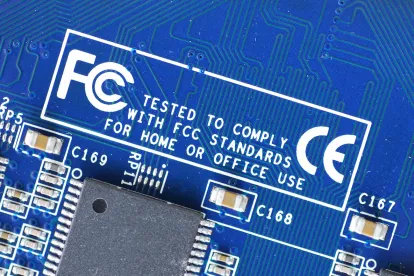A year ago, the Federal Communications Commission (FCC) approved its Fourth Report Order in Docket 17-59, Advanced Methods to Target and Eliminate Unlawful Robocalls (FCC-20-187A1.pdf). Therein, the FCC adopted certain “additional requirements to provide callers and consumers with more transparency to ensure that they can effectively access redress mechanisms, and ensure that a caller can verify the authenticity of its calls.” These mandates included, for example, requiring:
-
“terminating voice service providers that block calls to immediately notify the caller that the call has been blocked by sending either a Session Initiation Protocol (SIP) or ISDN User Part (ISUP) response code, as appropriate, and… all voice service providers in the call path to transmit these codes to the origination point.”
-
“terminating voice service providers that block calls on an opt-in or opt-out basis to disclose to their subscribers a list of blocked calls upon request.”
-
“when a calling party disputes whether blocking its calls is appropriate,…terminating voice service providers to provide a status update to the party that filed the dispute within 24 hours.”
In May of 2021, USTelecom – the Broadband Association (US Telecom), sought reconsideration and clarification of certain portions of the transparency and redress requirements adopted in the Call Blocking Fourth Report and Order.
First, the petition asked the Commission to “‘[m]ake clear that service providers have flexibility to select the appropriate code or tool to notify callers that their calls have been blocked,’ rather than requiring use of SIP Codes 607 or 608.”
Second, the petition asked the Commission to “‘[c]onfirm that voice service providers only are required and expected to provide notification of blocking when calls are blocked based on opt-in or opt-out analytics programs, and not in contexts where those requirements do not make sense.’”
Third, the petition asked the Commission to clarify that the “blocked calls list ‘need only include calls blocked based on a provider’s opt-in [or] opt-out analytics-based robocall blocking services, and not based on other features selected by the customer.’”
Fourth, the petition sought confirmation that “‘voice service providers serving enterprises and other organizations have the flexibility to work with those customers to determine the best approach to notification on a case-by-case basis.’”
On December 14, 2021, the FCC released its Order on Reconsideration, Sixth Further Notice of Proposed Rulemaking and Waiver Order (Recon Order), addressing the USTelecom reconsideration requests (FCC-21-126A1.pdf). Therein, the agency took the following actions with respect to those requests:
-
“[W]e grant USTelecom’s request that we allow voice service providers operating IP networks the flexibility to use SIP Code 603 to meet the immediate notification requirement beginning on January 1, 2022.”
-
“We deny USTelecom’s request to allow terminating voice service providers the flexibility not to provide immediate notification of blocking by means of the designated SIP or ISUP codes.”
-
“[W]e grant USTelecom’s request that we clarify that our immediate notification requirements apply to all analytics-based blocking, and do not apply to non-analytics-based blocking programs.”
-
“[W]e clarify that our blocked calls list requirements apply only to opt-in or opt-out analytics-based blocking and not to other blocking programs.”
-
“[W]e deny USTelecom’s request that we allow originating voice service providers to choose the method by which they notify enterprise callers of a blocked call.”
Approved rule changes will take effect 30 days after the Recon Order is published in the Federal Register or, for certain changes subject to the Paperwork Reduction Act, on a date specified by the FCC when that process is completed.




 />i
/>i
